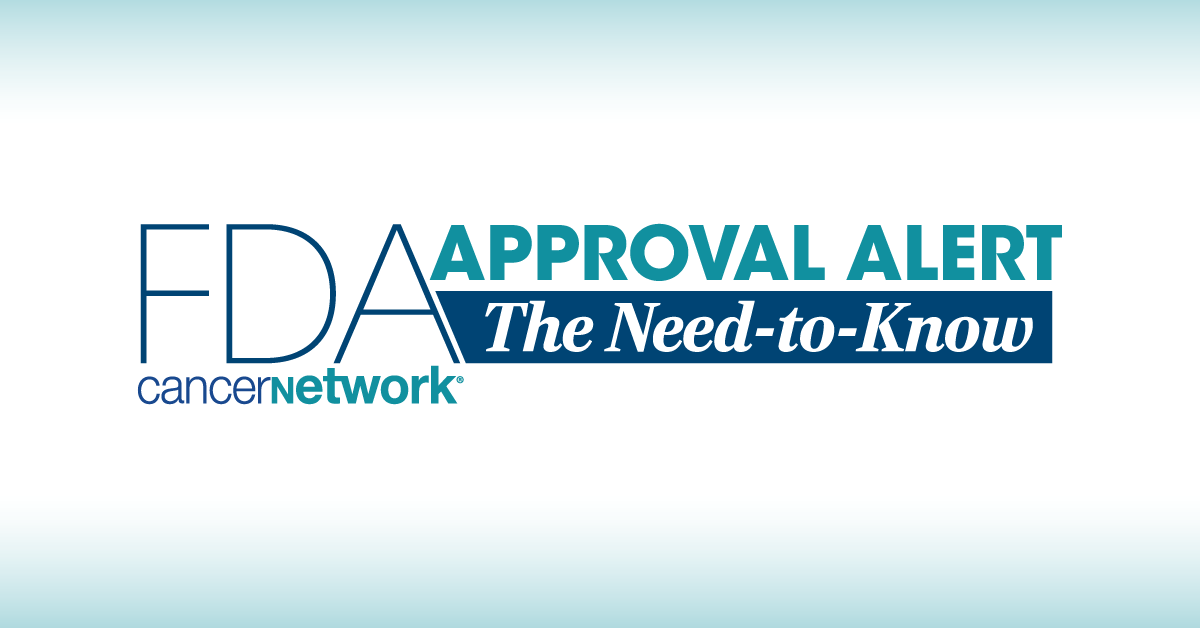FDA OKs Retifanlimab Combo in Recurrent/Metastatic Anal Cancer
Data from the POD1UM-303/InterAACT2 trial support the approval of retifanlimab/chemotherapy for patients with squamous cell carcinoma of the anal canal.
The FDA based its decision on findings from the phase 3 POD1UM-303/InterAACT2 trial (NCT04472429).

The FDA has approved retifanlimab-dlwr (Zynyz) plus platinum-based chemotherapy with carboplatin and paclitaxel as frontline treatment for adults with inoperable locally recurrent or metastatic squamous cell carcinoma of the anal canal (SCAC), according to a press release from the developer, Incyte.1 Additionally, the agency approved retifanlimab as monotherapy for adults with recurrent or metastatic SCAC who experienced progressive disease or intolerance associated with platinum-containing chemotherapy.
Supporting data for the combination therapy indication came from the phase 3 POD1UM-303/InterAACT2 trial (NCT04472429), which evaluated retifanlimab/chemotherapy in patients without prior systemic chemotherapy. Findings presented at the 2024 European Society for Medical Oncology (ESMO) Congress showed a median progression-free survival (PFS) of 9.3 months with retifanlimab/chemotherapy vs 7.4 months with placebo/chemotherapy, eliciting a 37% reduction in the risk of death (P = .0006).2 The experimental combination also improved the median overall survival (OS) by 6.2 months (P = .0273). Additional analysis for OS in this trial is ongoing.
Data from this study showed no new safety signals. Serious adverse effects (SAEs) affected 47% of those in the retifanlimab arm, with the most common toxicities including sepsis (3.2%), pulmonary embolism (3.2%), diarrhea (2.6%), and vomiting (2.6%).
"Patients with inoperable locally recurrent or metastatic anal cancer have historically [had] poor 5-year survival rates and limited treatment options. The POD1UM data highlight the potential of [retifanlimab] to be a meaningful new option, and notably demonstrate that the addition of [retifanlimab] to platinum-based chemotherapy significantly improves [PFS]," Marwan Fakih, MD, professor of Medical Oncology & Therapeutics Research, associate director of Clinical Sciences, medical director of the Briskin Center for Clinical Research, division chief of GI Medical Oncology and co-director of the Gastrointestinal Cancer Program at City of Hope, stated in the press release.1 "This approval marks an important advancement as it makes a new treatment approach available for this challenging cancer."
Additionally, findings from the phase 2 POD1UM-202 study (NCT03597295) supported the approval of retifanlimab monotherapy in this population. Efficacy data showed an objective response rate (ORR) of 14% as well as a disease control rate (DCR) of 49% with retifanlimab.
SAEs occurred in 40% of patients treated with retifanlimab in the POD1UM-202 study. The most common toxicities included non-urinary tract infections, perineal pain, abdominal pain, and anemia.
"The FDA approval of [retifanlimab] marks a pivotal moment, bringing effective combination and monotherapy treatment options to patients with advanced anal cancer after decades of limited innovation," Hervé Hoppenot chief executive officer of Incyte, added.1
References
- Incyte announces FDA approval of Zynyz® (retifanlimab-dlwr) making it the first and only approved first-line treatment for advanced anal cancer patients in the United States. News release. Incyte. May 15, 2025. Accessed May 15, 2025. https://tinyurl.com/48aaubht
- Incyte’s retifanlimab (Zynyz®) extends progression-free survival in patients with squamous cell anal carcinoma (SCAC); data featured at ESMO 2024 Presidential Symposium. News release. Incyte. September 14, 2024. Accessed May 15, 2025. https://tinyurl.com/c65kbbtj